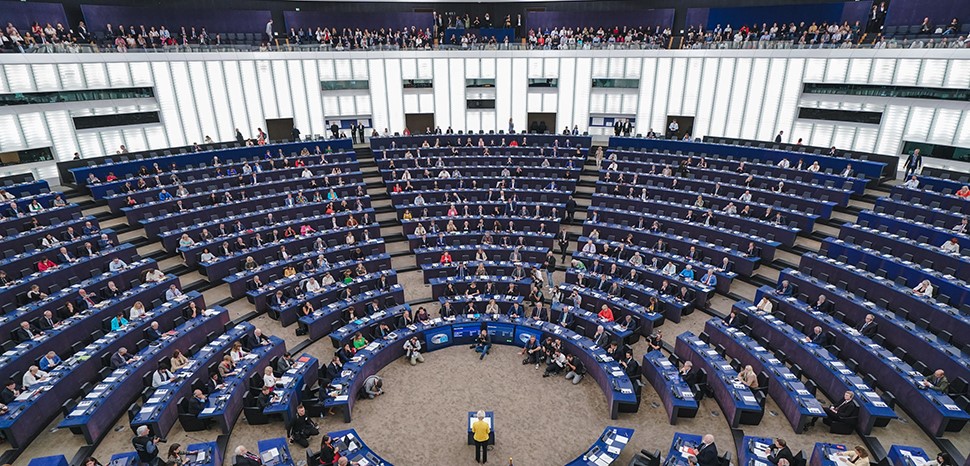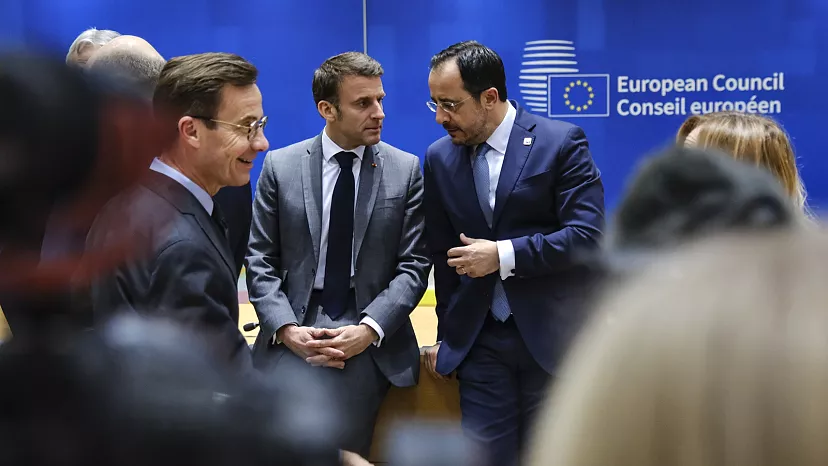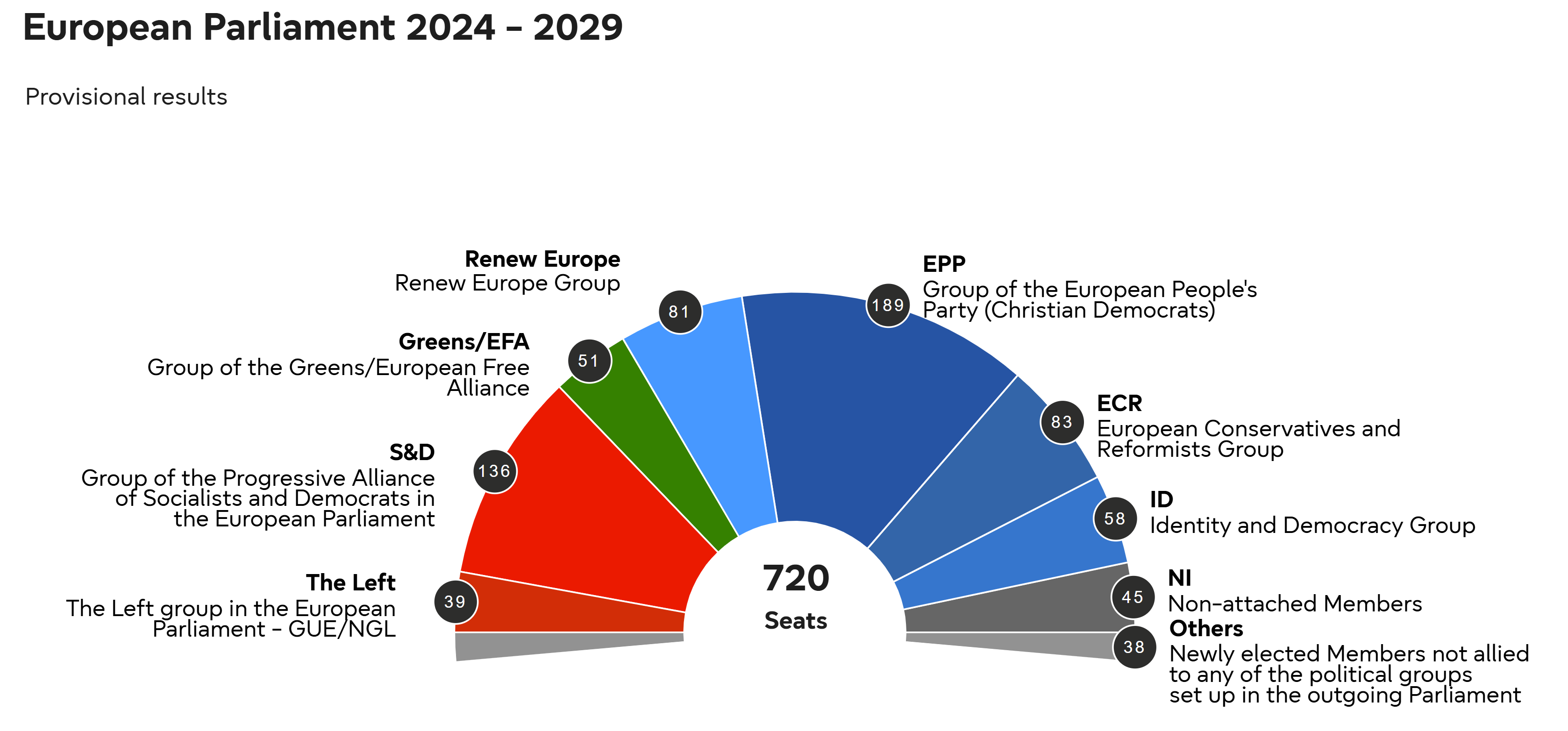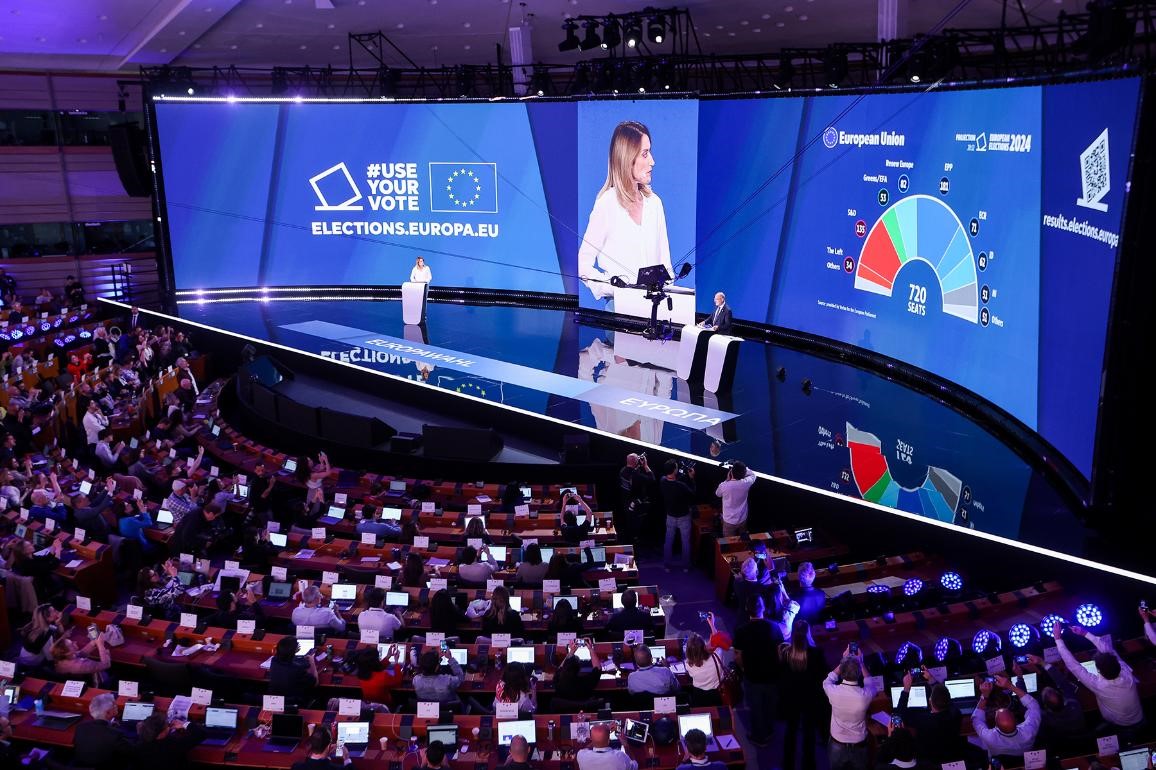By Vera Rodriguez,
The European elections took place last 6 – 9th of June, in 27 Member States. Celebrated every 5 years, each country votes for different parties at a national level which then go to the European Parliament and form ideological groups. This year’s election results made the headlines, as far-right parties grew across many European states. The question now is, what happens after we vote? What is the role of the European Parliament? This article will explain how much weight European elections carry going from the Ballots to Brussels.

The European Union operates as a supranational entity, where member states have ceded various traditional powers to policymakers based in Brussels. Although its structure mirrors that of a parliamentary democracy, the EU’s policy-making process is notably intricate. In a conventional state, power is divided into three branches to maintain balance: the legislative creates laws, the executive enforces them, and the judiciary ensures their legality. This separation is rooted in political philosophy’s concerns about concentrated power, succinctly captured by Montesquieu’s famous statement, “There is no liberty if the judiciary power is not separated from the legislative and executive”.
The EU embodies this philosophy of power distribution through a sophisticated power-sharing method among its primary institutions: the European Commission, the European Council, the Council of the EU, the Court of Justice of the EU, and the European Parliament. This involves a complex interplay, where executive responsibilities are shared between the Council and the Commission, while legislative duties are intertwined among the Commission, Council of the EU, and the Parliament. This structure creates a degree of confusion among EU affairs students (such as me) and, to a limited extent, citizens’ lack of understanding of each institution’s role.

Simply put, the Commission is the Union’s executive powerhouse, the voice of the EU. It works like a government, with a group of appointed members called Commissioners. On the other hand, the European Council and the Council of the EU are the voices of the Member States. Meanwhile, the Court of Justice ensures that EU law is interpreted and applied uniformly across all member states. Lastly, there is the European Parliament. Out of the above, this is the only institution directly elected by EU citizens, acting as the voice of the citizens of the EU. Members of the Parliament (MEPs) are responsible for many things, including EU legislation. However, after the elections, they are the ones to vote on the leadership of the European Parliament and the Commission’s composition. In the following weeks after the elections, the newly elected MEPs are forming political groups according to shared political beliefs. These act as the “political parties” of the EU and were seven during the last parliamentary term 2019 – 2024. During their first session on 16 – 19 July, MEPs will vote for the leadership of the Parliament, including the President of the chamber, currently held by Roberta Metsola.

The Parliament is also responsible for the election of both the President of the Commission and the hearing of the Commissioners. The former is proposed by the European Council and then voted by the Parliament. To ensure support, the candidate needs an absolute majority of the votes. Once this person is elected, the President of the European Commission selects Commissioners based on nominations from each EU country and assigns different policy portfolios to them. Again, the easiest parallel would be to compare it with a group of ministers in a government. Once the “president” is elected, they select their “ministers”/Commissioners and give them a role, Commissioner for Social Equality, Environment, etc. Then, the EP organizes meetings to hear these Commissioners and evaluates them. If they are not satisfied with the choice, they might ask the Commissioner to come back for a second hearing, or even withdraw their application.
After this brief explanation, the initial question thus returns: what happens after you vote in EP elections? In short, owing to the EU’s power structure, the elections hold far-reaching significance beyond just selecting Members of Parliament, shaping the composition of the Parliament leadership and the European Commission as well. This parliamentary term is poised to be particularly contentious, as the rise of far-right movements intensifies the threat of deepening political polarization. As the dust settles from the elections, the European Union stands at a crossroads. The influence of far-right factions threatens to disrupt the delicate balance of the Union’s political landscape, potentially undermining the collaborative spirit at the core of the EU’s mission. The heightened polarization could hinder decision-making and strain the cohesion among Member States.
In conclusion, the European Parliamentary elections are a crucial barometer for the political climate across the Union, impacting not only legislative representation but also the formation of other bodies like the Parliament and the Commission. The forthcoming term, marked by political turbulence and ideological divisions, will test the resilience and unity of the European Union. Navigating similar challenges is something that Brussels is already used to do. Nevertheless, how they will answer to this new reality remains a mystery to unfold.
References
- “Democracy is alive”: a look back at the 2024 European elections. European Parliament. Available here
- About the European Commission. Europa. Available here
- After the elections. European Parliament. Available here
- EU elections 2024: Who won and lost – and what happens next? World Economic Forum. Available here




